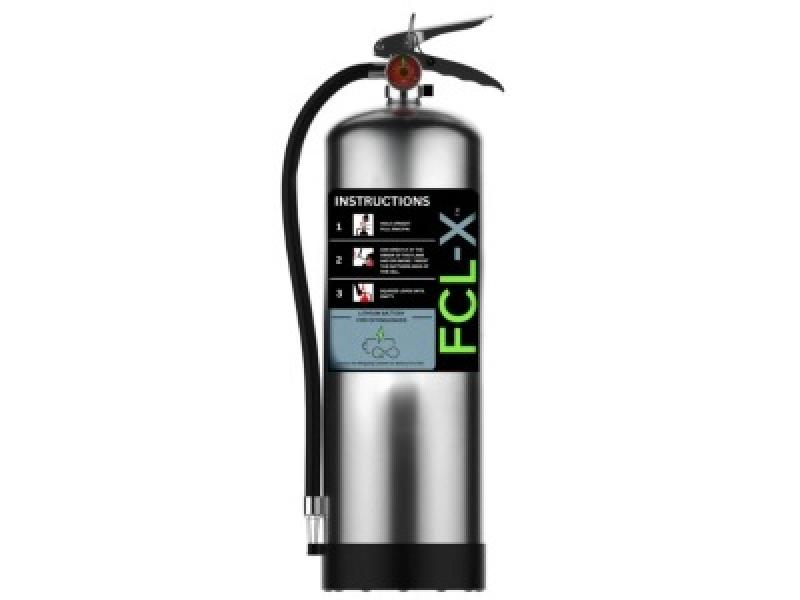
Electric vehicle charging stations from FLO (shown) and Tesla have been installed at many Cadillac Fairview properties across Canada. (Courtesy BOMA / FLO)
There is a commercially viable future for electric vehicle (EV) charging in the commercial real estate industry, but that day has yet to arrive says an executive with Cadillac Fairview, which has hundreds of EV chargers in its portfolio.
“We’re not there yet,” said Carey Stein, senior manager, business delivery, national operations at Cadillac Fairview. “It continues to be a great amenity that we provide to our clients . . . but definitely not a revenue generator for us yet.”
Stein was speaking at a Nov. 5 webinar on EV charging in the CRE industry, hosted by the North American charging network FLO in conjunction with BOMA Canada.
Cadillac Fairview (CF) has almost 350 chargers in its portfolio, predominantly fast Level 3 chargers – which can provide an 80 per cent charge in 30 minutes – as well as Tesla Superchargers. There have been almost 500,000 charge sessions at CF’s sites to date.
Stein said decisions to deploy EV chargers at CF sites used to be made by local general managers or property managers, typically for “dummy” chargers that did not provide analytics about usage.
“Unfortunately, this approach left us with a very fragmented and inconsistent approach toward EV charging. Customers were showing up to our shopping centres and they were getting very different experiences from one site to another.”
National electric vehicle charging program
In 2017, CF partnered with FLO to launch its national program, which included Level 3 fast chargers at many sites: “They were the first to market in some of the communities where we operated. That’s something we were really proud about.”
Having a national program has enabled CF to offer customers consistency at its shopping centres and office buildings, he said.
FLO is responsible for maintaining the equipment, covering electricity costs and dealing with users.
“Taking the worry off of our backs was another key consideration when we were looking at what kind of deployment we wanted to do nationally.”
Under CF’s arrangement with Tesla, most sites have 20 bays for supercharging. “These are massive deployments, with most of them being the only supercharging site in the surrounding area.”
Pay-per-use EV charging
While CF used to allow customers to charge their electric vehicles for free, the company has transitioned to a pay-for-use model. It did so after finding customers were taking advantage of the free chargers.
For example, at TD Centre in Toronto, where five EV chargers were located in prime spots close to the elevators, “people would show up, not needing a charge at all, probably showing up with 80, 90 per cent battery, but there was free electricity and a prime parking spot to use.”
The company learned simply charging $1 an hour to use a charger deterred people from using the spots, unless they also wanted a charge. “We’ve gotten much better use of the chargers since then.”
Stein said the deals with FLO and Tesla have been built to support current and future demand: “Our approach here was to get our feet wet in this space while providing a great amenity to our customers and I think we’ve done that successfully.”
Stein said as electric vehicles grow in popularity, there will be less of a need for CF to offer chargers on a large scale, as cars will have longer and longer ranges and more people will charge their vehicles at home.
Indirect benefits of EV charging programs
However, he said there are indirect benefits of EV chargers, such as demonstrating CF’s commitment to sustainability in the communities in which it operates.
The chargers have also opened CF up to “great marketing opportunities”. These include the recent announcement of a partnership with Porsche in which test drives of the Taycan, the carmaker’s first all-electric vehicle, will be offered at three CF properties in Ontario and B.C.
In addition, CF has seen additional parking revenues at a downtown Vancouver office building where there has been high usage of the chargers well beyond the building’s normal operating hours.
At CF Toronto Eaton Centre, there has been high usage by area condo dwellers who do not have access to EV chargers in their buildings. As a result, chargers in CF properties are leading to the sales of additional electric vehicles to condo dwellers who would not otherwise be able to buy them.
FLO and BOMA Canada have partnered to develop the 2021 Electric Vehicle Infrastructure Guide. Available for download on the BOMA website, the guide provides an overview of charging technology and describes the sustainability impacts of deploying stations at public and commercial real estate sites.
“Building managers and owners are positioned to become key players in helping the country transition to a low carbon economy,” said Hazel Sutton, director, environmental standards at BOMA Canada. “That’s a very exciting place to be.”







